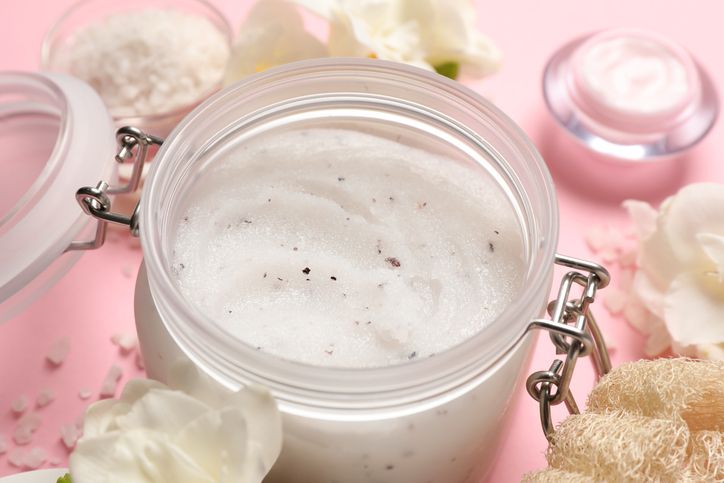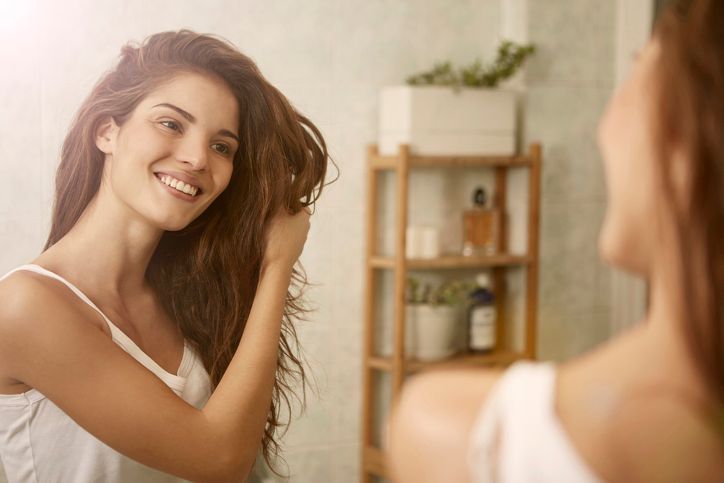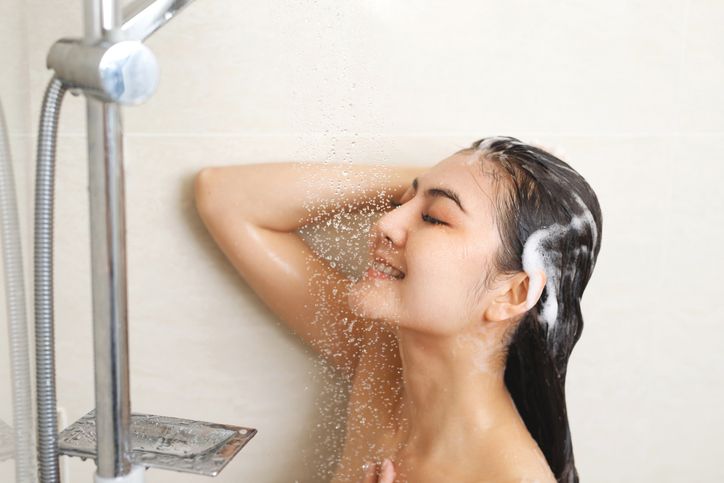
- Home
- Trend
- Weight Loss Strategies
- Acne Tips
- Hair Health Information
- Blemish Removal Tips
- Acne Scar Removal Tips
- Muscle Building Techniques
- Intimate Care Tips
- Postpartum Intimate Care
- Eye Bags Wiki
- Tips for Face Slimming
- Secret of Permanent Hair Removal
- Breast Enlargement Tips
- Cure to Snoring
- Marionette Lines
- Skin-Tightening Secrets
Most people know that facial exfoliation is important—but did you know your scalp needs it too? While many focus only on making their hair soft and shiny, they often neglect scalp care. But healthy hair starts with a healthy scalp. Using a scalp scrub can help your scalp defend against air pollution, UV rays, and other external stressors, while reducing issues like dandruff, inflammation, and scalp acne.
This article will walk you through the benefits of scalp scrubs, how to use them correctly, and how to choose the right product for your needs—so you can improve the health of both your scalp and your hair.
What Is a Scalp Scrub?

Scalp scrubs are hair care products designed to remove dead skin cells from the scalp and promote microcirculation. These products—also known as scalp exfoliators, cleansing creams, purifying fluids, or peeling liquids—contain fine exfoliating particles such as coarse sea salt or herbal extracts.
When massaged into the scalp, these particles help loosen and remove buildup, cleanse excess sebum, and improve scalp conditions like seborrheic hair loss. This creates a healthier environment for hair growth.
The effects are often noticeable after just one use: your scalp feels fresher, less itchy or tight, and your hair may become less prone to thinning or shedding. While not a daily essential, occasional scalp scrubs can enhance scalp health. If you don’t want to buy one, an occasional exfoliating treatment at a salon can provide similar results—healthier scalp and shinier hair.
7 Key Benefits of Scalp Scrubs

1. Deep Cleansing
Scalp scrubs offer a deeper clean than regular shampoos. The micro-particles remove dead skin, dirt, dust, and excess oils, leaving the scalp refreshed and light. This allows new skin cells to breathe and thrive—especially helpful for urban dwellers exposed to pollution.
2. Promotes Hair Growth
Oil and debris can clog follicles and block new hair from growing. Scrubbing removes these blockages and stimulates circulation, delivering oxygen and nutrients to the hair root cells—supporting healthy growth.
3. Oil Control
If your scalp gets greasy easily, a scrub can help regulate sebum production. This reduces the risk of oily scalp-related hair loss, which happens when excessive oil causes inflammation around the hair roots, weakening and thinning the hair.
4. Prevents Dandruff
Dandruff is just dead skin cells shedding, but when it becomes excessive, it signals scalp imbalance. Both oily and dry scalps can suffer from dandruff. Scrubs speed up skin cell turnover, reducing flaky buildup.
5. Enhances Product Absorption
Once the scalp is free of buildup, it's better able to absorb nutrients from shampoos, conditioners, and scalp serums. Improved microcirculation also helps these products penetrate deeper and work more effectively.
6. Soothes Discomfort
If your scalp is itchy or feels hot and tender, many scrubs include soothing ingredients like mint, lavender, chamomile, rosemary, and green tea. These provide a cooling, calming, and anti-inflammatory effect. Some also offer antioxidant and moisturizing benefits.
7. Relieves Tension
Scalp scrubs combined with massage can help you relax—just like using a deep conditioning hair mask. Better circulation to the head can ease stress and lift your mood. Try scrubbing your scalp in the shower after school or work for an instant recharge.
免費體驗
F8 Hair Regrowth Treatment
1 Minute Self-Registration
Date should not be before minimal date
How to Use a Scalp Scrub Properly?
1. Wet your hair and scalp with warm or cool water—this helps the scrub spread easily.
2. Take a small amount of scrub in your hands, rub between your palms, then apply to the scalp. Massage gently with your fingertips to spread it evenly. You can also use a wide-tooth wooden comb to help distribute and stimulate circulation.
3. Don’t forget your hairline, crown, temples, and the back of your neck.
4. Leave the scrub on for about a minute, then rinse thoroughly with water. Be sure all the particles are washed away.
5. Some prefer to use scalp scrub before shampooing, others after—either is fine. Check the FAQ section below for more detail on the pros and cons of each order.
Common Ingredients in Scalp Scrubs
Exfoliating and Purifying: Sea salt, minerals, AHA fruit acids, salicylic acid (BHA), citric acid, tea tree oil
Moisturizing and Nourishing: Coralline extract, olive oil, almond oil, nut oils, hyaluronic acid, glycerin, amino acids, rosehip oil
Anti-inflammatory and Antioxidant: Safflower extract, Scutellaria root extract, peppermint oil, lavender, seaweed extract, ginseng, ginger
Important Precautions When Using Scalp Scrubs
1. Don’t Overuse
Limit usage to 1–2 times a week. Over-exfoliating can make both your scalp and hair overly dry, increasing the risk of dandruff and inflammation.
2. Choose Based on Your Scalp Type
Dry scalps should use moisturizing scrubs sparingly. If your scalp is sensitive, inflamed, or wounded, avoid scrubs until it heals. Choose products with natural plant-based ingredients and avoid silicones, parabens, artificial fragrances, and dyes.
3. Use Gently
Massage lightly—don’t press too hard, or you might irritate your scalp. Always rinse thoroughly afterward to remove all particles. If any gets in your eyes, rinse immediately with water.
4. Patch Test First
Always patch test a new scrub behind your ear or on your hand to check for allergies before applying it to your scalp. Follow product instructions closely and give your scalp time to adjust.
免費體驗
F8 Hair Regrowth Treatment
1 Minute Self-Registration
Date should not be before minimal date
Who Should and Shouldn’t Use Scalp Scrubs?
Recommended For:
• Oily scalps
• Hair that gets greasy quickly
• People with sweaty or odorous scalps
• Scalp buildup from styling products
These conditions often cause excess oil and bacteria buildup, which can be improved with scrubs that exfoliate and purify the scalp.
Not Recommended For:
• Highly sensitive or wounded scalps
• Red, inflamed, or bleeding scalp conditions
• Severely dry scalps
In these cases, exfoliation can cause more harm than good. It’s better to first treat any underlying issues before considering a scalp scrub. If your scalp is very dry, focus on hydration with scalp serums instead.
Constant Itching, Odor, or Weak Hair? Try the Perfect Medical F8 Hair Regrowth Treatment
While scalp scrubs are simple and effective for maintenance, they’re not for everyone. Overuse can lead to a cycle of dryness that requires even more moisturizing products—an endless loop. But skipping scrubs entirely can also leave your scalp greasy and smelly, with more hair breakage and loss.
That’s where the Perfect Medical F8 Hair Regrowth Treatment comes in. This non-invasive soft laser therapy deeply purifies the scalp, exfoliates gently, and stimulates circulation to create an ideal environment for healthy hair growth. Combined with medical-grade hair serums, it nourishes both scalp and hair.
Safe and painless, the F8 treatment is suitable for anyone 18 and up—and right now, you can try it for free! Click the link below to sign up, and a specialist from Perfect Medical will contact you shortly to arrange your session.
Sign Up Today: Perfect Medical F8 Hair Regrowth Treatment免費體驗
F8 Hair Regrowth Treatment
1 Minute Self-Registration
Date should not be before minimal date
FAQ

Who should avoid scalp scrubs?
People with sensitive skin, open wounds, inflammation, or very dry scalps should avoid exfoliation, as it may worsen the condition.
Can scalp scrubs cure baldness?
They help remove buildup and stimulate blood flow, which can improve hair growth if the cause is clogged follicles. But they won’t help if your hair loss is due to dead hair follicles. In such cases, medication, serums, laser therapy, or hair transplants are more effective.
Can I use scalp scrubs every day?
No—daily use can damage the scalp's natural barrier. For oily scalps, 1–2 times a week is ideal. For dry scalps, even less frequent use is recommended, always followed by moisturizing products.
Should my hair be wet or dry when scrubbing?
Wet. Damp hair helps the product spread more evenly and comfortably across the scalp.
Should I scrub before or after shampooing?
It depends. Scrubbing after shampooing removes residue left behind. But if your shampoo is highly moisturizing, it’s better to scrub before so the hydration comes last to soothe the skin. Either way, scrubbing clears buildup and helps other products absorb better.








